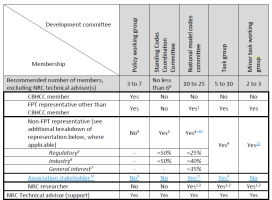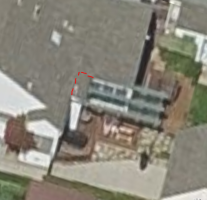Should Building Inspectors Have Hands-On Contractor Experience?
Building inspectors play a vital role in ensuring that construction projects comply with local building codes, safety regulations, and design standards. However, an ongoing debate in the construction industry centers on whether inspectors should have prior hands-on experience as contractors in fields such as framing, plumbing, electrical, or mechanical work. This question raises important points about inspectors' qualifications and their ability to balance technical knowledge with practical experience.Inspectors with practical, hands-on experience in a construction trade can bring significant benefits to their role. For example, an inspector who has worked as a mechanical contractor might easily spot deficiencies in HVAC systems or identify faulty installation of plumbing components. Contractors often appreciate inspectors with field experience because they are seen as more relatable and practical, understanding both the challenges and shortcuts that may be taken during construction. This hands-on experience can make inspections smoother and less confrontational, as the inspector is seen as someone who "has been there" and understands the trade-offs contractors face.
On the other hand, inspectors are primarily tasked with enforcing building codes and ensuring safety, not solving construction problems. It is argued that a strong understanding of the codes—gained through education, certifications, and on-the-job training—can be just as valuable as years of hands-on trade experience. Many jurisdictions require that inspectors maintain continuing education in building codes to stay current, ensuring they can effectively enforce standards even without direct contractor experience. Additionally, some building inspectors come from non-trade backgrounds, such as architecture or engineering, yet still perform their jobs effectively through training and mentorship. These professionals argue that code knowledge, attention to detail, and critical thinking are the most essential skills for an inspector, rather than years of hands-on trade experience.
Contractors may sometimes feel frustrated if they believe their inspector lacks real-world construction experience, especially when disagreements arise over the interpretation of codes. Yet, inspectors are required to adhere strictly to building codes, and even experienced contractors must follow these guidelines, regardless of how unnecessary or impractical they may appear in some cases. Conversely, it’s worth noting that not all contractors have expertise in every trade, and specialized inspections often require a broader understanding of the entire construction process.
Ultimately, the key to effective building inspections might not solely depend on prior field experience but on a combination of code expertise, continuous education, and effective communication with contractors. Building inspectors, with or without trade experience, need to collaborate with contractors to ensure that both parties are working toward the common goal of creating safe, compliant buildings.
The real question is: How important is hands-on experience for building inspectors? Is it essential for inspectors to have worked in the field, or is a deep understanding of building codes enough to ensure compliance and safety? This is where the dialogue begins.
References:
- U.S. Bureau of Labor Statistics, “Construction and Building Inspectors” https://www.bls.gov/ooh/construction-and-extraction/construction-and-building-inspectors.htm
- Crest Real Estate, “The Role of Construction Building Inspectors and the Importance of Permit Expediting” https://www.crestrealestate.com/
- HomeGauge, “Does Construction Experience Benefit Home Inspectors?” https://www.homegauge.com
- CareerExplorer, “What Does a Building Inspector Do?” https://www.careerexplorer.com/careers/building-inspector/
- Acuity, “Tips on Working with Building Inspectors” https://www.acuity.com/



